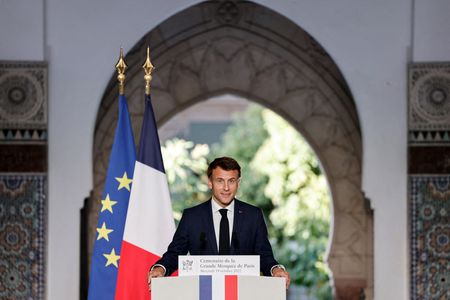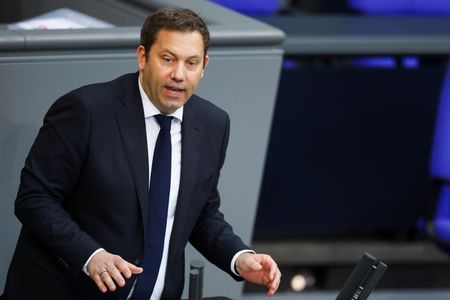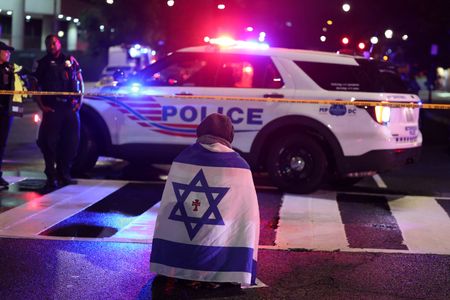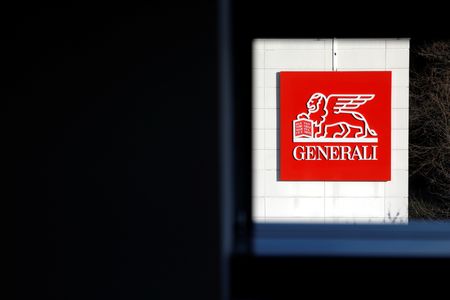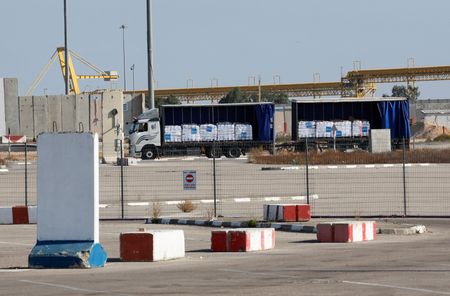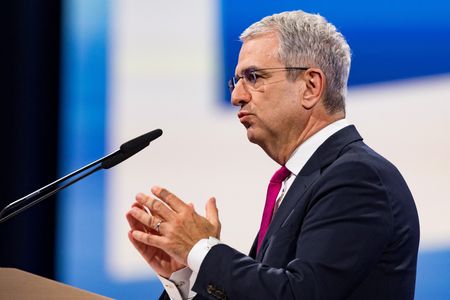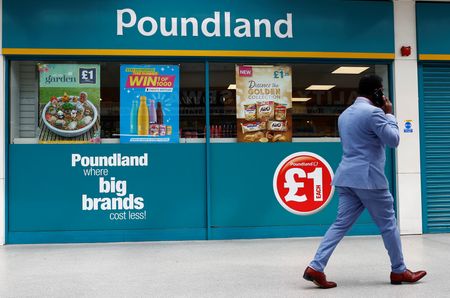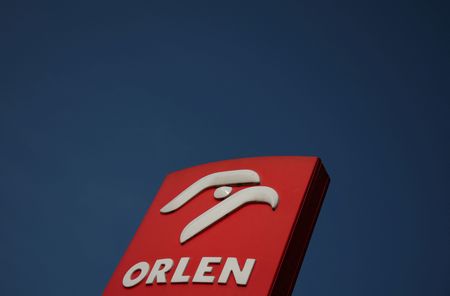By Juliette Jabkhiro
PARIS (Reuters) -President Emmanuel Macron convened senior ministers on Wednesday to address a state-commissioned report that accuses the Muslim Brotherhood of waging a covert campaign via local proxies to subvert France’s secular values and institutions.
The report called for action to halt what it called a slow-burning spread of “political Islam” posing a threat to social cohesion, drawing swift criticism from members of the Muslim community and some academics.
Under mounting pressure from a rising far-right opposition, Macron has undertaken a crackdown on what he calls Islamist separatism by seeking to limit foreign influence over Muslim institutions and communities.
Now, presidential advisers say Macron wants to tackle what they frame as a long-term Islamist plan to infiltrate state institutions and change them from within.
“The reality of this threat, even if it is long-term and does not involve violent action, highlights the risk of damage to the fabric of society and republican institutions,” said an excerpt of the report, a copy of which Reuters obtained.
The government has said it will not publish the report in full. Macron ordered ministers to draw up measures in response to the report for another government meeting in June.
The report said the Islamist campaign was focusing on schools, mosques and local non-governmental organisations, with the aim of influencing rule-making at local and national levels, notably concerning secularism and gender equality.
The report describes the Musulmans de France (Muslims of France) association as the “national branch” of the Muslim Brotherhood, a global Islamist organisation that was founded in Egypt in 1928 as part of a movement to end colonial rule.
The Brotherhood’s stated goal is to establish sharia (Islamic law) through peaceful political means. It is banned in several Arab countries including Egypt.
DENIAL OF MUSLIM BROTHERHOOD LINK
Musulmans de France denies belonging to the Brotherhood, according to the report. Its leader was not immediately available for comment.
Azzedine Gaci, head of the Villeurbanne mosque near Lyon that is cited in the report, denied ties with the Brotherhood and said the report was a “slap in the face” after he has worked in close collaboration with French authorities for years.
Ahead of Wednesday’s meeting, hardline Interior Minister Bruno Retailleau said the report underlined a clear threat from the Muslim Brotherhood. “Its ultimate goal is to shift all of French society to sharia,” he said.
France’s Muslim population numbers over 6 million, the largest in Europe.
The report’s conclusions stated that no recent evidence indicated Musulmans de France wished to establish an Islamic state in France or enforce sharia.
Haoues Seniguer, a researcher specialising in political Islam, said that while Musulmans de France held a conservative vision of Islam, it had no ambition to transform French society into an Islamic one.
“In the public debate and politicians’ words, there is a tendency to act as if the distant heirs of the Muslim Brotherhood today had the exact same views as the founder of the Muslim Brotherhood in 1928. (This) makes absolutely no sense.”
Macron denies stigmatising Muslims and says Islam has a place in French society. However, civic rights and Muslim groups say the government is increasingly impinging on religious freedom, making it harder for Muslims to express their identity. They cite a crackdown on several Muslim schools as an example.
“Our teachings have always been respectful of republican values,” Makhlouf Mameche, head of the National Federation for Muslim Education, told Reuters. “Our goal is to make sure our pupils succeed.”
(Reporting by Juliette Jabkhiro; editing by Richard Lough and Mark Heinrich)



